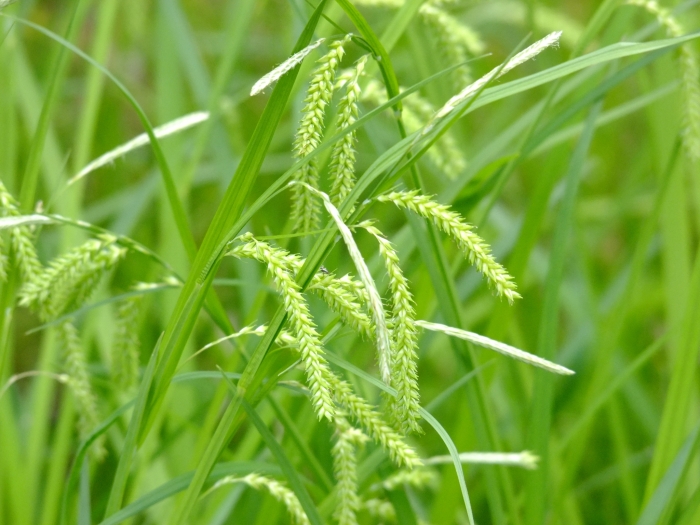Drooping Sedge
(Carex prasina)
Drooping Sedge (Carex prasina)
/
/

Summit Metro Parks
CC BY 4.0
Image By:
Summit Metro Parks
Recorded By:
Copyright:
CC BY 4.0
Copyright Notice:
Photo by: Summit Metro Parks | License Type: CC BY 4.0 | License URL: http://creativecommons.org/licenses/by/4.0/ | Rights Holder: Summit Metro Parks | Publisher: iNaturalist | Date Created: 2009-05-07T12:27:44-07:00 |

























Estimated Native Range
Summary
Carex prasina, commonly known as drooping sedge, is a perennial herbaceous plant native to the wetlands of eastern Canada and the north-central and eastern United States, particularly thriving in mesic to wet deciduous forests, often near streams, seeps, springs, and fens. It plays a crucial role in maintaining the biodiversity and ecological health of these areas. Drooping sedge typically grows to a height of 20-60 cm, with a clumping habit that forms dense tufts. The leaves are bright green, grass-like, and arching, giving the plant its characteristic drooping appearance. The inconspicuous greenish-brown flowers appear in late spring to early summer, and while not showy, they are an important food source for local wildlife.
In cultivation, drooping sedge is valued for its ability to thrive in moist, shady conditions, making it an excellent choice for rain gardens, water edges, and naturalized woodland gardens. It is also used to stabilize soil and prevent erosion in wet areas. Carex prasina prefers consistently moist to wet soils and can tolerate a range of soil types, from clay to loam, as long as there is good water retention. It is best grown in part shade to full shade and requires minimal maintenance once established. There are no significant disease or pest issues, but it can spread readily by rhizomes, which should be considered when planting in smaller spaces to prevent unwanted spread.CC BY-SA 4.0
In cultivation, drooping sedge is valued for its ability to thrive in moist, shady conditions, making it an excellent choice for rain gardens, water edges, and naturalized woodland gardens. It is also used to stabilize soil and prevent erosion in wet areas. Carex prasina prefers consistently moist to wet soils and can tolerate a range of soil types, from clay to loam, as long as there is good water retention. It is best grown in part shade to full shade and requires minimal maintenance once established. There are no significant disease or pest issues, but it can spread readily by rhizomes, which should be considered when planting in smaller spaces to prevent unwanted spread.CC BY-SA 4.0
Plant Description
- Plant Type: Grass
- Height: 1.5-2.5 feet
- Width: 1-2 feet
- Growth Rate: Moderate
- Flower Color: N/A
- Flowering Season: Spring, Summer
- Leaf Retention: Deciduous
Growth Requirements
- Sun: Part Shade, Full Shade
- Water: Medium
- Drainage: Medium, Slow
Common Uses
Erosion Control, Low Maintenance, Water Garden
Natural Habitat
Native to wetlands of eastern Canada and the north-central and eastern United States, thriving in mesic to wet deciduous forests
Other Names
Common Names: Drooping Sedge, Nodding Sedge, Leek-Green Sedge
Scientific Names: , Carex prasina, Carex miliacea, Carex miliacea, Carex subcompressa, Olamblis miliacea,
GBIF Accepted Name: